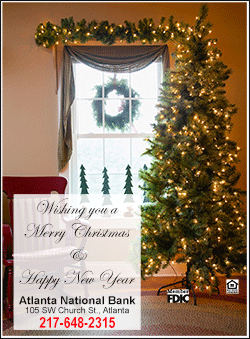|
 Above the Christian and Muslim women laying out embroidery
stalls, workmen strung seasonal lights onto the Church of St.
Gabriel. The church's underground spring, according to Greek
Orthodox tradition, is where Mary was drawing water during the
Annunciation - when the angel Gabriel told her she would give
birth to Jesus. Above the Christian and Muslim women laying out embroidery
stalls, workmen strung seasonal lights onto the Church of St.
Gabriel. The church's underground spring, according to Greek
Orthodox tradition, is where Mary was drawing water during the
Annunciation - when the angel Gabriel told her she would give
birth to Jesus.
The most common form of embroidery on display was "tatreez", a
centuries-old form of cross-stitch patterns on stretched white
canvasses that is practiced in Arab communities throughout
Israel, and in Palestinian towns across the West Bank and Gaza.
"There is a feeling that we, the Palestinian citizens of Israel,
are starting to lose our identity, our language, and our
heritage," said Violette Khoury, director of Nasijona, a women's
association holding Christmas workshops to teach embroidery to
younger generations.

"In our schools, children don't learn these traditions. They
don't learn their history," Khoury added. "So what we decided to
do is to bring the older generation, many of whom were born
before Israel, into the workshop to teach traditional works to
our young people."
Maintaining the ways of their elders is particularly important,
the women say, in a year in which many feel their communities
have been negatively affected by new Israeli legislation.
In 2018 Israel passed a "nation-state" law, declaring that only
Jews have the right of self-determination in the "historical
homeland of the Jewish people" and removing Arabic as an
official language alongside Hebrew.
[to top of second column] |

The law's advocates say it is largely symbolic, marking the 70th
anniversary of the state's independence. When it passed in July,
Prime Minister Benjamin Netanyahu told parliament it was a "defining
moment in the annals of Zionism and the history of the state of
Israel."
But critics called the law a racist measure. Many within Israel's 20
percent Arab minority say their communities face discrimination in
areas such as education, health and housing.
Nazareth is the focal point of Israel's Arab minority, which
comprises mainly descendants of the Palestinians who remained after
the 1948 Arab-Jewish war that surrounded the creation of the state
of Israel.
The integration of those who remained in what became Israel - some
of whom openly identify as Palestinian - is a subject of debate
within the country.
Nazareth itself becomes an attraction for all communities near
Christmas, as the city's main squares fill up with families and
hoards of tourists and pilgrims wanting to see the lighting of the
Christmas tree and the seasonal decorations.
"This tree is a sign of peace. It is a very important event, for
Christians and residents of Nazareth and the Galilee region," said
Efaf Touma, president of the Community Council of Nazareth.
"It symbolizes our presence, that we are still living here." she
said.
(Reporting by Rami Ayyub. Editing by Patrick Johnston)
[© 2018 Thomson Reuters. All rights
reserved.] Copyright 2018 Reuters. All rights reserved. This material may not be published,
broadcast, rewritten or redistributed.
Thompson Reuters is solely responsible for this content. |